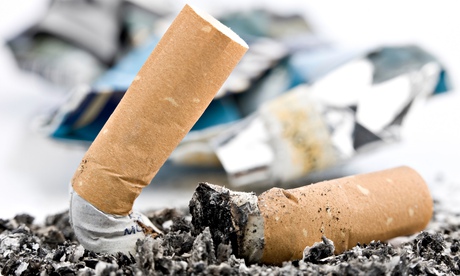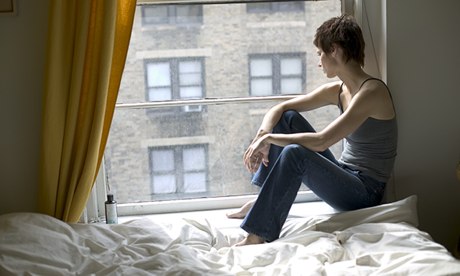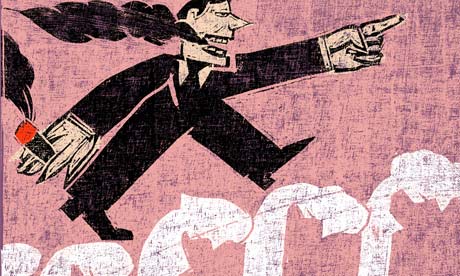It’s important to live healthily, but scientists also tell us that the majority of cancers are down to chance – a good reminder of the limits of individual responsibility

Our terror of death (happy new year, by the way) surely has much to do with a fear that it is out of our control. The lifetime risk of dying in a road accident is disturbingly high – one in 240 – and yet the freakishly small chance of dying in a plane accident generally provokes far more fear. We dread a final few moments in which we are powerless to do anything except wait for oblivion. So perhaps the news that most cancers are the product of bad luck – rather than, say, our diet or lifestyles – is scant reassurance. Most cancers are a random lightning bolt, not something we can avoid by keeping away from tobacco or excessive booze, or by going for regular morning runs. That’s something we have to live with.
But perhaps the news should be of comfort. It is, of course, crucial to promote healthy lifestyles. Regular exercise, a good diet and the avoidance of excess does save lives. Yet the cult of individualism fuels the idea that we are invariably personally responsible for the situation we are in: whether that be poverty, unemployment or ill health. Cancer is more individualised than most diseases: all that talk of “losing” or “winning” battles. A far wiser approach was summed up by DJ Danny Baker after his own diagnosis. He said he was “just the battlefield, science is doing the fighting and of course the wonderful docs and nurses of the brilliant NHS”. The cancer patient, in other words, was practically a bystander in a collective effort.
One of the heroes of 2014 was Stephen Sutton because of his infectious optimism and cheerfulness in the face of cancer. But his battle was about not letting cancer consume his final few months on earth, rather than a superhuman quest to miraculously defeat the disease himself. What struck me about Stephen was that a situation that seemed nightmarish to most of us became an opportunity for him to take control of his life. It is what struck me, too, about Gordon Aikman, a 29-year-old Scot with a terminal diagnosis of motor neurone disease. There is no right way to die, but he has learned how to live.
So that’s why I have some sympathy with Richard Smith, a doctor who once edited the British Medical Journal. He has upset many by suggesting we are “wasting billions trying to cure cancer”, when it is the “best” way to go. I certainly would not advocate cutting back on cancer research, quite the opposite – even if other fatal diseases don’t receive the same amount of attention – and cancer can be a horrible way to die. But his point was that it provided an opportunity to make peace, to reflect on life, to do all the things you always wanted to do – to finally have control over your own life. Other ways of dying simply do not provide that option, either because they are so sudden or because of the form they take.
We have less of a say over how and when we die than we thought. That may be a cause for anxiety: it may actually frighten us more. I think it’s liberating. If only we learned to live like many of those – like Stephen or Gordon – facing death, taking control of their lives, we would be so much happier than we are.




